How Madison Falconer is carving out space for creativity and community
July 4, 2025
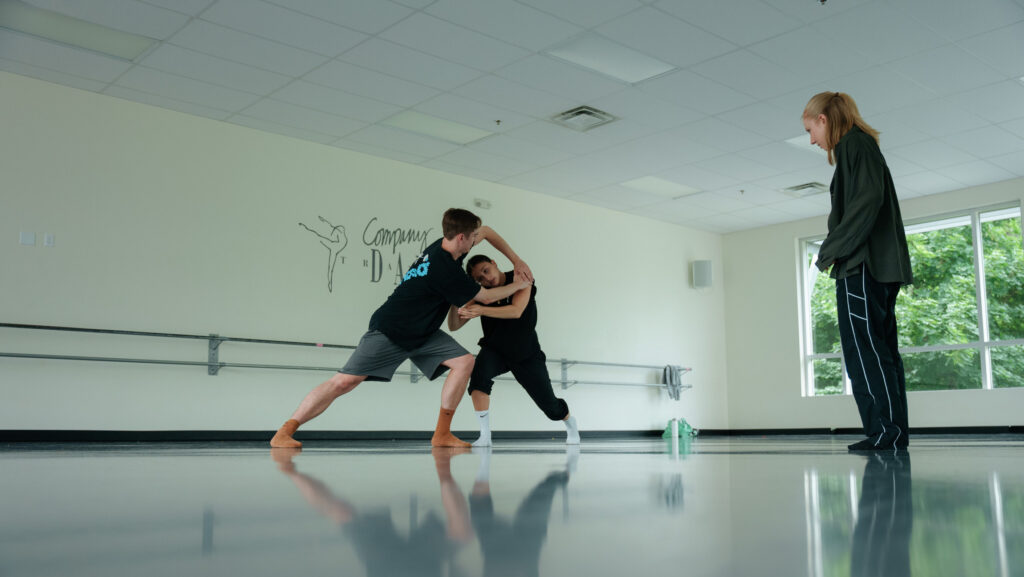
Madison Falconer (far right) founded the Woodworks Artist Residency in 2020 | Photo by Lucy Blumenfield
With the Woodworks Artist Residency, the USC Kaufman alum is building a more sustainable future for the arts.
Patience comes naturally to Madison Falconer (BFA ’23). Credit goes to her grandparents — avid woodworkers who instilled a formative lesson when she was young: “Craft is a conversation between what is and what could be.” It’s a philosophy Falconer has carried with her ever since.
Those early teachings of embracing flaws and seeing potential in a twisted grain of wood laid the foundation for a creative path grounded in experimentation and trust. Today, Falconer is the founder of Woodworks Artist Residency (an homage to her grandparents and their practice), a multidisciplinary residency in Traverse City, Michigan, now in its fifth season and gearing up for its digital showcase on July 8. Under the umbrella of her production company Falco, Woodworks has quietly blossomed into a sought-after opportunity for choreographers, composers, filmmakers, designers, and dancers from across the country, including Kaufman alumni, who are eagerly seeking a chance to dive deep into their creative process.
“It evolves a little bit each time — intentionally, responsively, and always in conversation with the people and place around it,” Falconer says of the residency. “ Every year, Woodworks grows closer to the thing I’m trying to build: purpose-driven work that shapes a stronger, healthier future for the arts.”
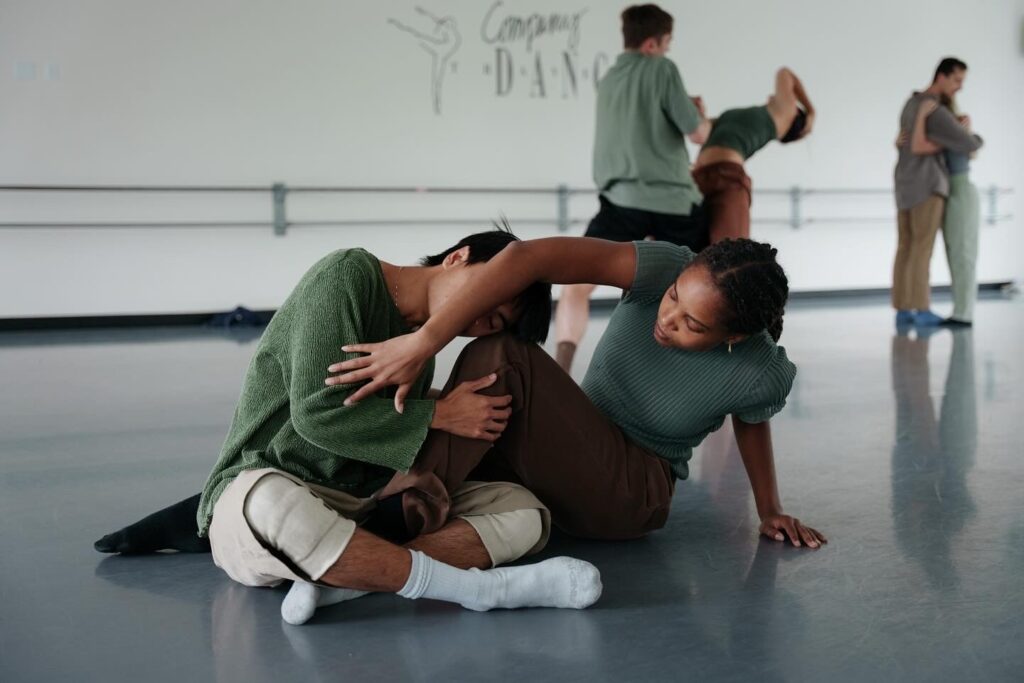
Falconer’s own story is deeply tied to Traverse City, where she grew up. She trained locally at Company Dance Traverse before moving to Chicago to dance with A&A Ballet and the Hubbard Street Scholarship Program. By 15, she was already distinguishing herself as a choreographer, winning Critics’ Choice Awards and eventually becoming one of the youngest ever to receive the Outstanding Choreographer award at the Youth America Grand Prix.
Her talent and curiosity led her to the USC Glorya Kaufman School of Dance, where she earned her BFA in 2023. The bulk of her time centered on occupational science and compositional research, areas she felt would eventually help to make dance more accessible and diverse. During her time at USC, Falconer co-produced and directed dozens of interactive arts events to cultivate community and play in unconventional spaces.
“It’s important that there is joy and play as a foundation, so that when things get sticky, the effort stays emotionally light,” Falconer says of her creative endeavors. “It is imperative that we respect and seek to understand each other’s patterns of communication, as everyone has their own unique patterns.”
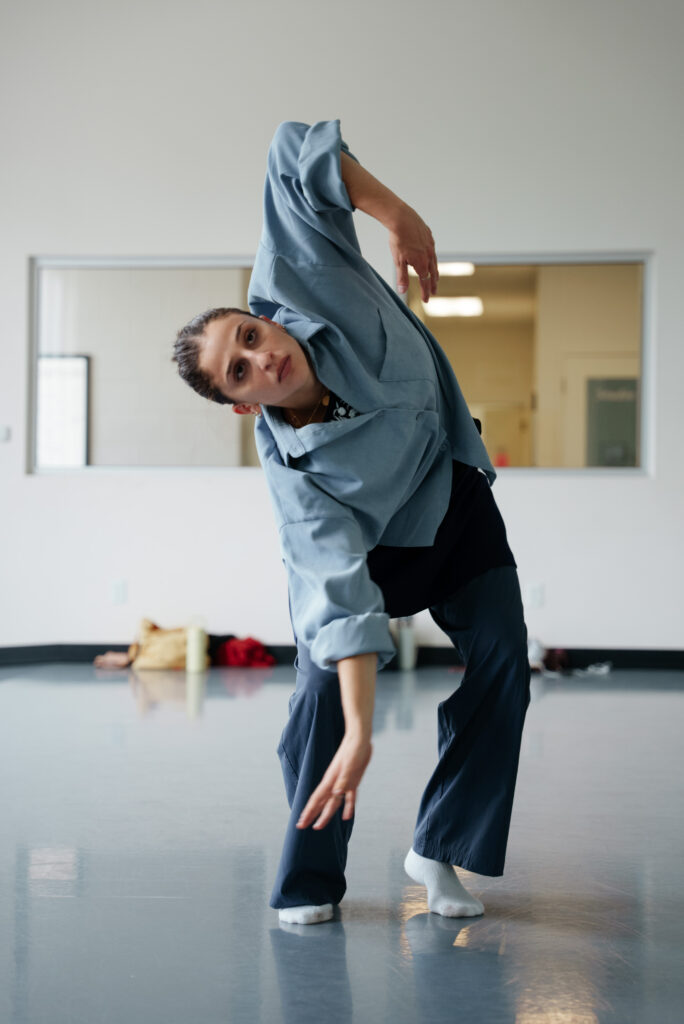
When the pandemic brought her back home to Michigan temporarily, Falconer saw an opportunity to build something different. She founded her company, Falco, and the Woodworks Residency, with a clear-eyed vision, where artists “leave with more clarity about and love for their voice and contribution to space and pace,” she says.
Falconer adds that it’s an invitation to “slow down” and engage with the creative process in a mindful way. “Rooted in craft, carved by curiosity, and grown through community,” the program is both a retreat and an incubator. For three weeks, participants dive deep into creation and collaboration, framed by auspicious surroundings. In the studio, artists-in-residence have daily company class, workshops, and rehearsals. Perhaps the crux of its power, though, is where it happens. “A residency isn’t just about the people there, but the place where it’s happening,” Falconer adds.
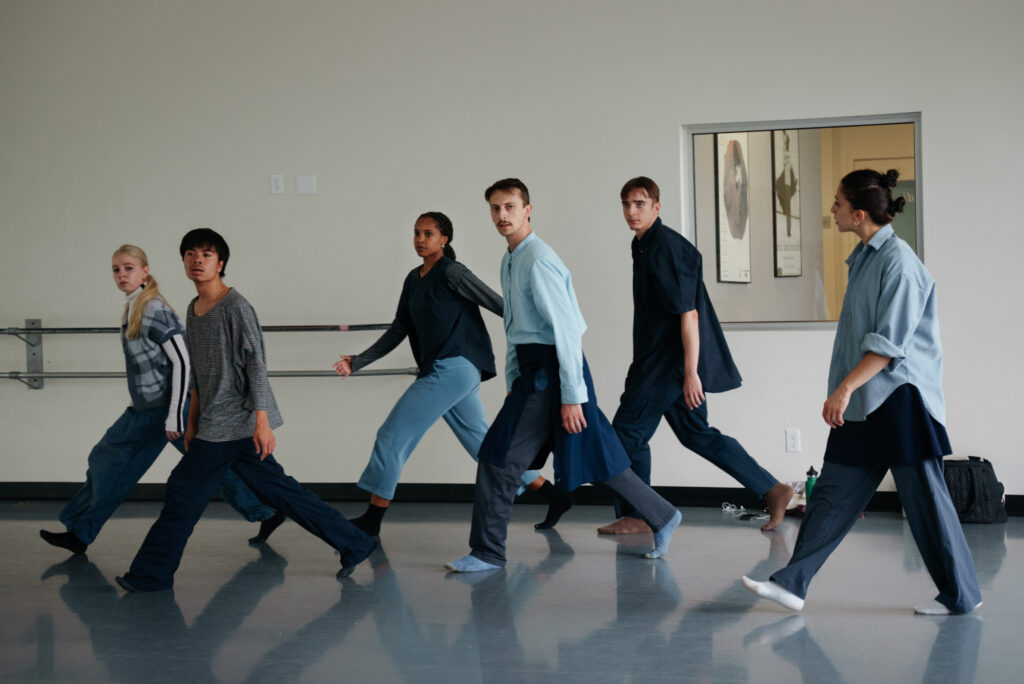
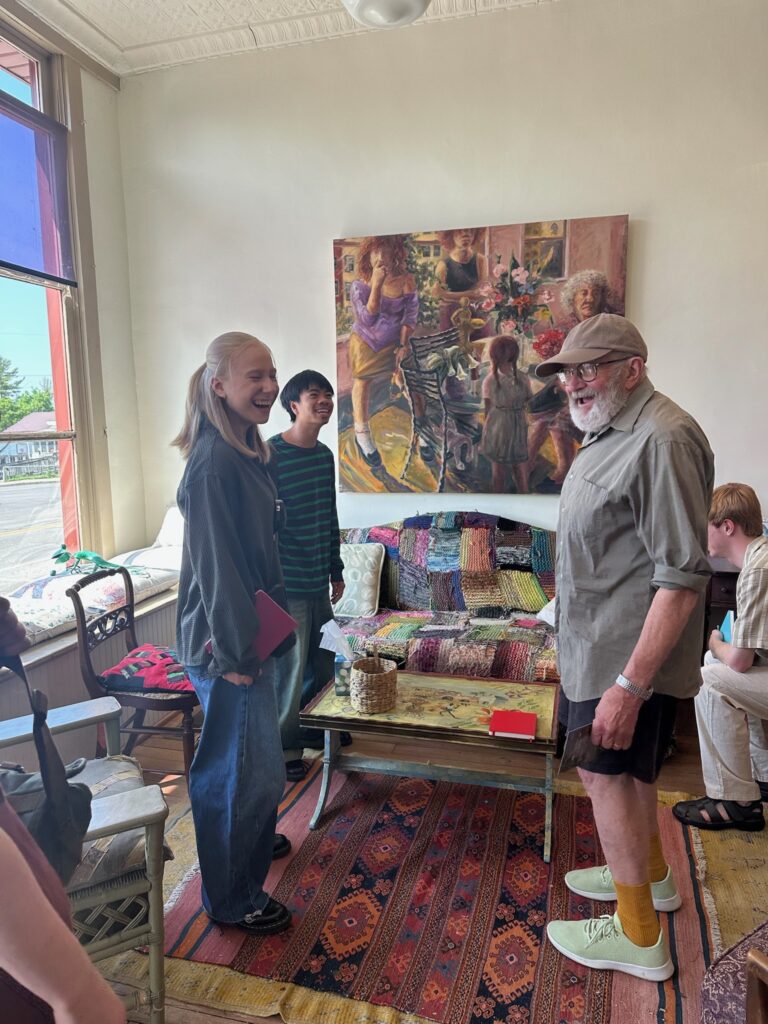
That place is Northern Michigan, a city of cascading dunes, shimmering lakes, and seemingly endless woods. It’s also home to a local favorite taco spot, and picnics are frequent at the farm of Woodworks mentors Meg and Jerry.
This hands-on infrastructure is part of Falconer’s vision to create a holistic and sustainable support of creativity and collaboration. The participants walk away not only with a polished piece of work, but with stronger networks and a renewed connection to their vocation.
And yet, there’s no denying Falconer’s impact: a quiet force that prioritizes creativity and collaboration. Its very ethos is reflective of the lessons Falconer continues to live by, where art making is a living, breathing practice of patience and curiosity.
“As a choreographer, it is not my job to make movements, but to solve stuck-ness,” she says. “I believe this starts by asking questions.”